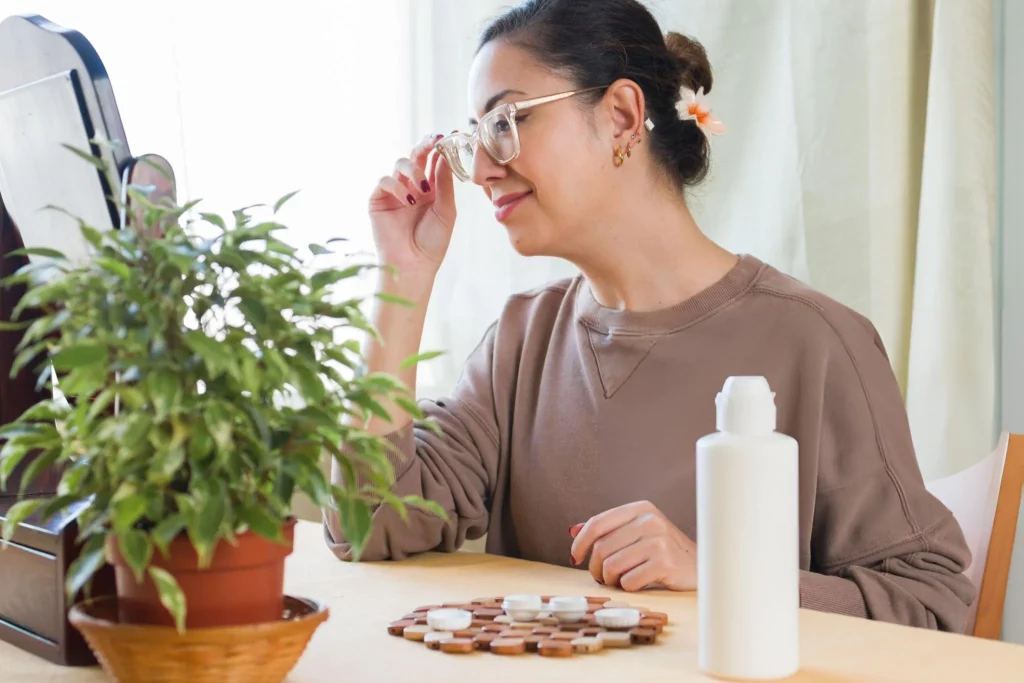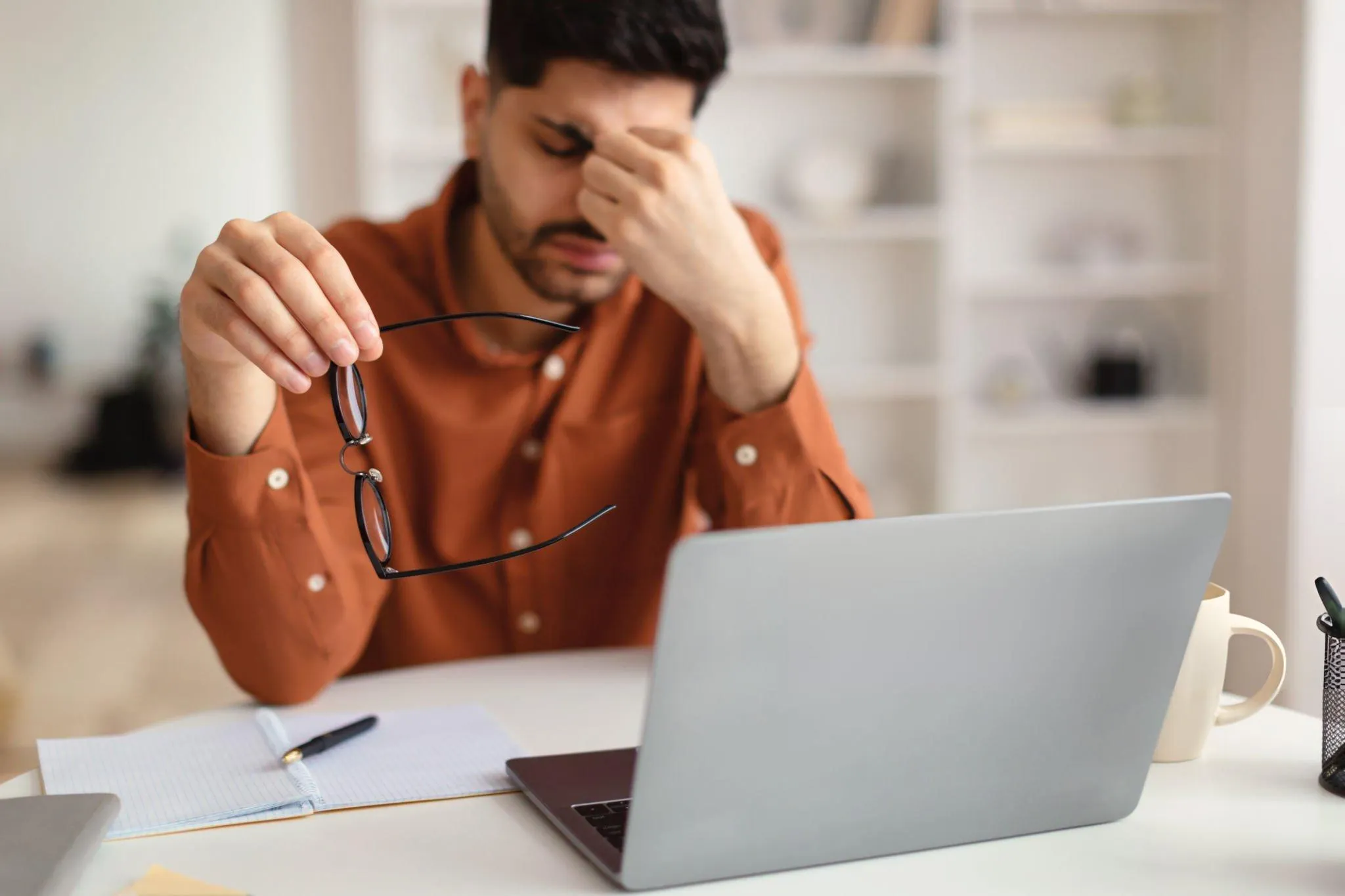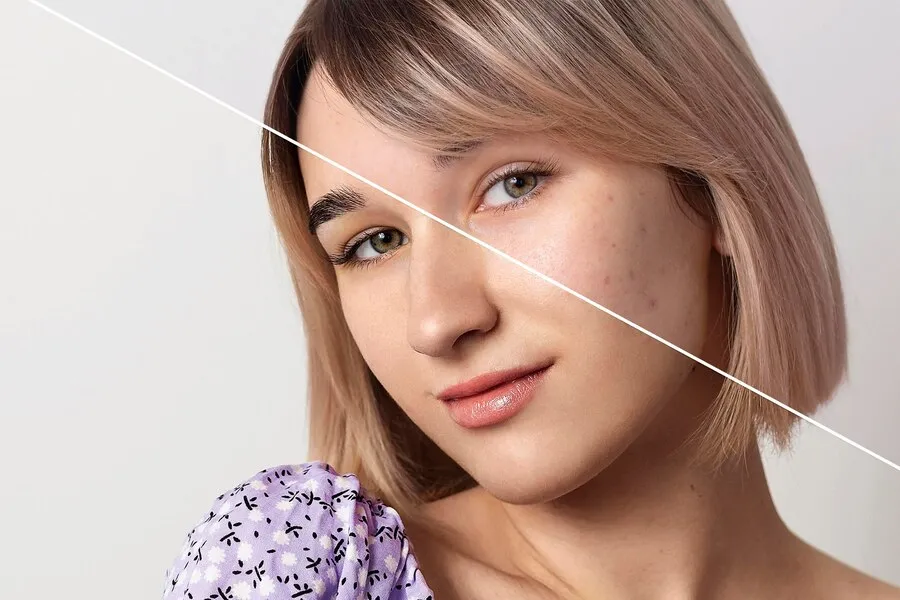Many people who use digital devices suffer from eye strain symptoms. This discomfort is often caused by prolonged screen time, leading to decreased blinking.
Fortunately, there are ways to ease eye strain. One way is to wear blue light blocking glasses that also provide anti-glare. These lenses have been shown to help with glare and sleep cycle disruption.
Reduce Eye Strain
If you work on a computer all day or spend a lot of time in front of screens, blue light blocking glasses may sound like a great idea. These glasses are designed to block out the wavelengths of light that supposedly cause eye strain and headaches. But do they work?
Several studies have found that blue-light-blocking glasses don’t improve eyestrain or sleep. A study published in 2021 found that wearing blue-light filtering lenses for two hours didn’t make any difference in eyestrain symptoms or sleep quality.
In addition, the researchers found that blue-light filtering glasses did not help reduce glare or increase blink rate. It could be because it’s not the blue light causing eye strain; other factors such as fatigue, stress, or lack of sleep cause digital eye problems. The good news is that there are other ways to reduce eye strain and headaches, including taking regular breaks from your screen, reducing the brightness on your monitor, sitting at a comfortable distance, using artificial tears, or making sure you blink frequently.
Improve Sleep
Extended screen time is widely acknowledged to cause eye strain in many people. Therefore, keeping track of the time we spend in front of screens is essential, as excessive screen time can adversely affect our sleep and overall health.
For this reason, there has been a growing interest in glasses and apps that block blue light. The idea behind this is that a specific part of the light spectrum, called blue, suppresses our body’s ability to produce melatonin, which is needed to fall asleep at night.
Unfortunately, little research supports the effectiveness of blue light-blocking glasses. Most studies have been done on specialized populations, such as those with insomnia or other mental health conditions, rather than the general population.
Regardless of what product you purchase, experts recommend limiting your screen time before bed and taking breaks. To prevent eye strain, take a 20-second break every 20 minutes and focus on something 20 feet away.
Reduce Dry Eye
It’s no secret that prolonged screen time can cause eye strain. But what many people don’t realize is that it can also cause dry eyes. And since dry eyes are the leading cause of digital eye strain, protecting your eyes is essential.
Blue light-blocking glasses are highly effective in filtering out the harmful effects of blue light. They have been designed with advanced technology to provide optimal protection against digital eye strain, headaches, and other related symptoms caused by prolonged exposure to blue light.
While it’s no surprise that spending hours on the computer or looking at a screen can lead to eye strain, it is a little surprising that so much hype surrounds a pair of glasses that claim to reduce this strain.
While the benefits of blue light blockers are still being debated, it’s a good idea to wear them if you spend a lot of time on your computer or mobile devices. Just use them with other healthy habits, such as taking a break from screens every 20 minutes and using artificial tears when needed. It will help ensure your eyes get the rest they need to stay healthy.
Reduce Eye Redness

If you spend hours in front of a screen each day, you’ll likely experience eye strain. But glasses don’t help to alleviate this discomfort, according to a new meta-analysis. The findings show that these glasses don’t block enough blue light and that the glare they create on screens can make it harder to see.
This lack of efficacy is because blue light isn’t the leading cause of digital eyestrain. It’s likely caused by decreased blinking and other effects that don’t involve blue light. However, that doesn’t mean that blue light glasses aren’t beneficial.
The sun emits blue light; a small amount of this natural light is essential for your eyesight and health. It regulates your circadian rhythm, boosts alertness and memory, and improves mood and cognitive function.
Reduce Glare
Blue light blocker glasses reduce glare from LED, LCD, and fluorescent screens. It can help to ease eye strain and discomfort caused by these glares. It can also make it easier to focus on tasks and read documents and books.
Some studies show that these glasses can make a difference in eyestrain symptoms. However, other research has yet to show the same results. It is important to note that these lenses do not reduce glare from sunlight or other natural sources of blue light. So, protecting your eyes from too much blue light from all sources is essential.
You should also take regular breaks from the screen and use the 20-20-20 rule to look away from your screen for 20 seconds every 20 minutes. It can help to prevent eye strain and promote a better night’s sleep.

Jasper Bruxner is a passionate and versatile blogger with a keen eye for trends and a knack for crafting engaging content. As the founder of WendyWaldman, he has established himself as a trusted resource in a diverse range of niches, including food, tech, health, travel, business, lifestyle, and news. He tends to share the latest tech news, trends, and updates with the community built around Wendywaldman. His expertise and engaging writing style have attracted a loyal following, making him a respected voice in the online community.




